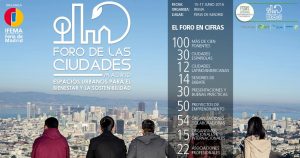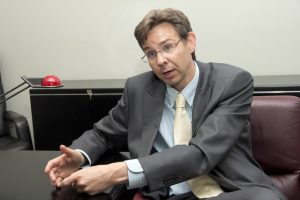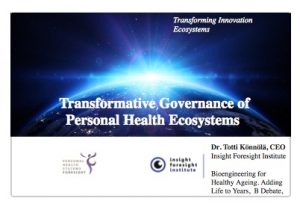 Managing Director of Insight Foresight Institute (IFI), Totti Könnölä participates in the round table on cities that move towards the circular economy, in the third edition of the Forum of the Cities of Madrid IFEMA (13-15 June 2018) that will once again offer a a cross-sectional look at the world of cities, their innovative management and the role played by all the actors that interact in urban environments.
Managing Director of Insight Foresight Institute (IFI), Totti Könnölä participates in the round table on cities that move towards the circular economy, in the third edition of the Forum of the Cities of Madrid IFEMA (13-15 June 2018) that will once again offer a a cross-sectional look at the world of cities, their innovative management and the role played by all the actors that interact in urban environments.
CITIES THAT TRANSIT TO THE CIRCULAR ECONOMY
Afternoon session 15.45-17.20, 14 June.
Opening presentation
• City of Madrid. Inés Sabanés, Councilor of the Government Area of Environment and Mobility.
Discussion-round table
• City of Girona. Empar Vila, Head of Urban Services.
• Ecohispanic. Christian Manrique, General Director.
• FORETIC. Elena Ruiz, Coordinator of the Action Group in Circular Economy.
• Circular Economy Foundation. Anabel Rodríguez, Director.
• Totti Kónnölä, member of the “100 of COTEC” network. Director of IFI. Expert in innovation ecosystems.
Moderates and energizes: Plataforma Envase y Sociedad, Miguel Aballe.
The city for citizens will be the main axis on which all the themes will revolve, an approach that has always been the distinguishing feature of the Forum of the Cities of Madrid. For this reason, a part of the program will be devoted to discussing the so-called “NEW URBAN ECONOMIES”.

 Invited speech of Dr. Totti Könnölä, CEO inf Insight Foresight Institute in the scientific conference ‘Bioengineering for Healthy Ageing. Adding Life to Years’ November 9th 2017, CosmoCaixa Barcelona.
Invited speech of Dr. Totti Könnölä, CEO inf Insight Foresight Institute in the scientific conference ‘Bioengineering for Healthy Ageing. Adding Life to Years’ November 9th 2017, CosmoCaixa Barcelona. Juan Mulet Melia, a member of the Innovation Council of IFI, and Totti Könnölä, CEO of the Insight Foresight Institute (IFI), write in Cinco Días, one of the leading economic journals in Spain, to promote smart specialization in the regions.
Juan Mulet Melia, a member of the Innovation Council of IFI, and Totti Könnölä, CEO of the Insight Foresight Institute (IFI), write in Cinco Días, one of the leading economic journals in Spain, to promote smart specialization in the regions.